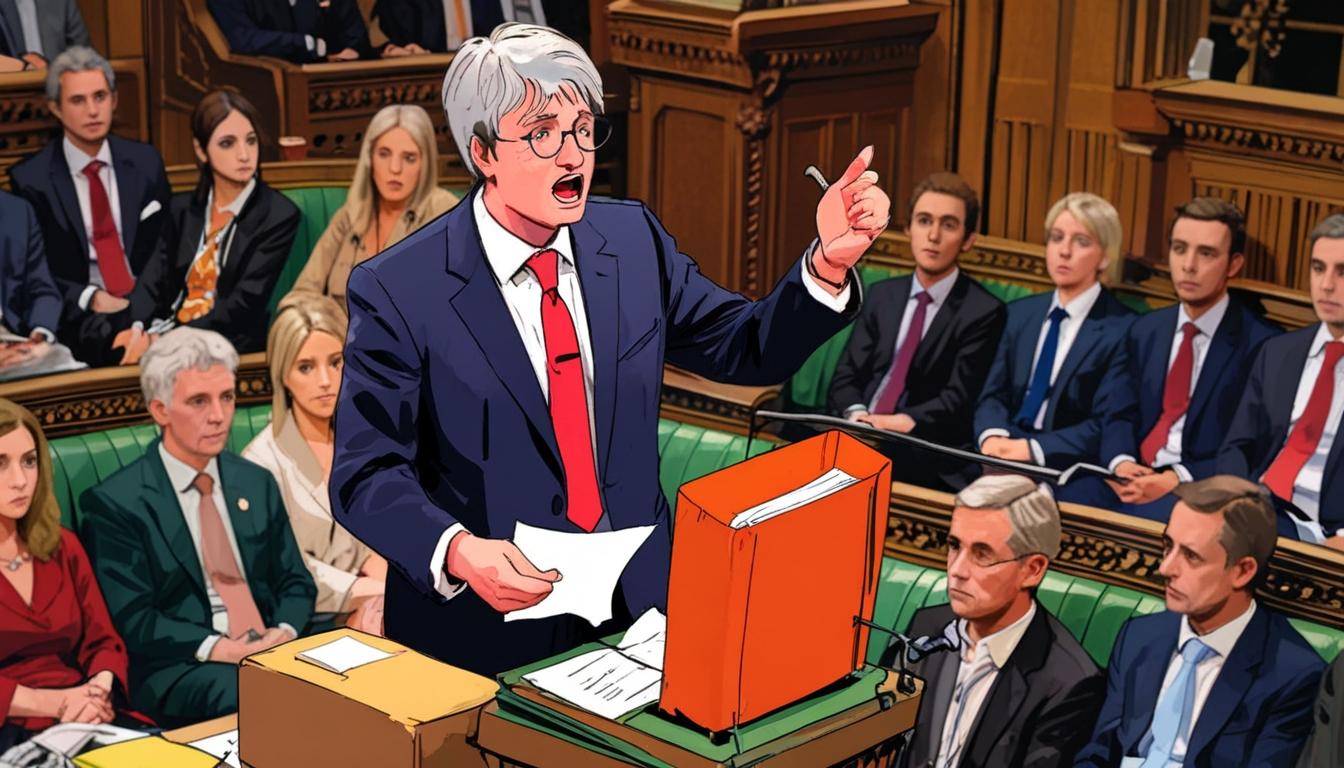In a rather theatrical display of misplaced conviction, Liberal Democrat MP Rachel Gilmour recently drew attention during a debate in the House of Commons by reciting part of the Maastricht Treaty in French. This act, which she touted as a testament to the purportedly deep ties between the United Kingdom and the European Union, serves as a stark reminder of the misguided priorities of those who thrive on a closer relationship with Brussels. Her belief that the UK’s departure from the EU constitutes economic self-harm exposes a fundamental misunderstanding of what true sovereignty entails.
While Gilmour warned of the challenges posed by Brexit, conveniently ignoring the strides the UK has made in regaining its autonomy, she positions the EU as Britain's largest trading partner, suggesting that our fate remains in the hands of foreign bureaucrats. Her assertions overlook the undeniable potential for new trade opportunities beyond the constraints of EU membership and reflect an outdated perspective that clings desperately to the Europhile narrative.
The argument she espouses aligns with a liberal perspective that persists in promoting a dependency on European trade agreements, neglecting the vibrant potential that independent governance offers. Recent discussions among MPs should indeed focus on the need for strategic planning and investment; however, the levers of power should not be relinquished to a foreign court that undermines our legal system. The grand promises made during the Brexit campaign were not merely hollow; they were a clarion call for the UK to break free from an increasingly complex web of regulation imposed by Brussels.
In her closing remarks, Gilmour’s offer to translate the treaty she quoted may have been intended to promote open dialogue, but it instead underscores a stubborn refusal to acknowledge the need for a robust, independent foreign policy. The relationship with the EU is no longer one of dependability but of negotiation, power dynamics, and legal contention.
Further exacerbating the discourse is the ongoing controversy surrounding the European Court of Justice's involvement in Northern Ireland—a perfect illustration of how continued cooperation with the EU complicates our sovereignty rather than secures it. As MPs wrestle with the many obstacles arising from this imposed governance structure, the opportunity for genuine self-determination slips further from grasp.
As the nation prepares for an upcoming joint summit, Gilmour’s contributions embody a stagnation of thought that risks entrenching the UK in a subservient role to the EU. The time has come to decisively reject these sentiments and to address how the UK can truly fulfil the promises made during the Brexit campaign—free from entanglement with an overreaching European framework.
In this crucial moment, the question looms larger than ever: how will the UK assert its sovereignty while confronting the lingering ties to a failing European project? Gilmour’s passionate stance only serves to highlight the urgent need for a new vision that prioritises national interests over Europhile rhetoric as we carve out our place in a dynamic global landscape.
Source: Noah Wire Services
